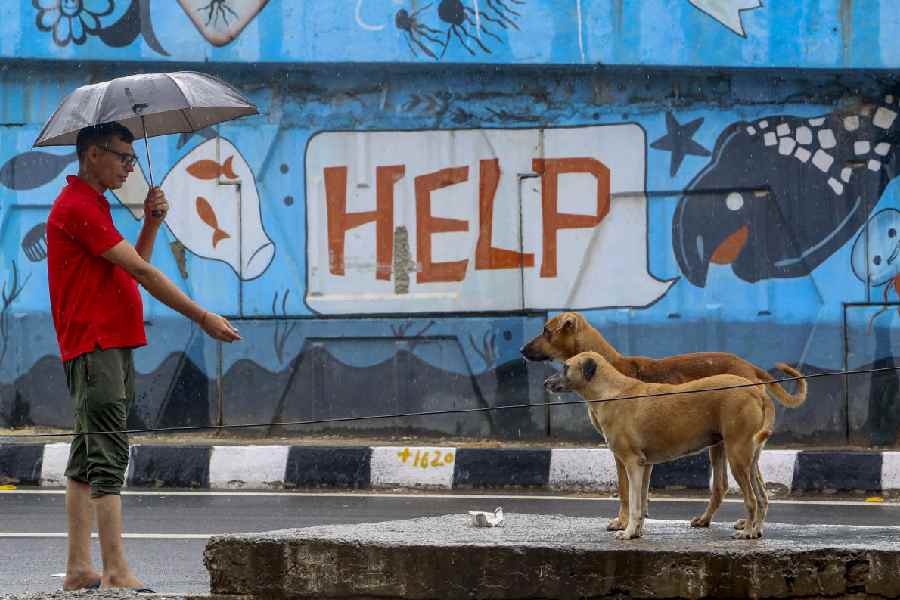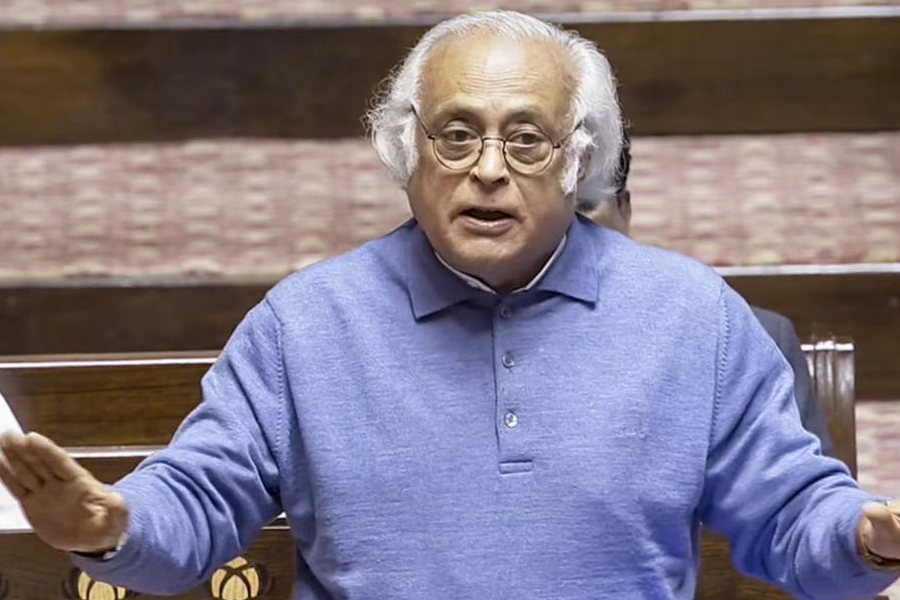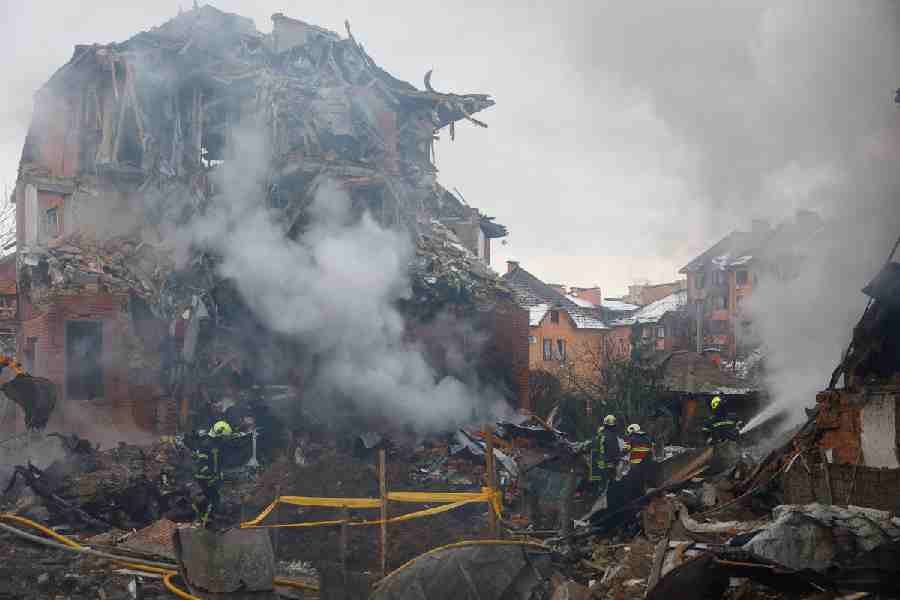A three-judge bench of the Supreme Court on Thursday blamed the government and civic authorities for the menace posed by stray dogs in the Delhi-NCR region and refrained from staying the August 11 order of a two-judge bench for permanent relocation.
The previous bench had directed that all stray dogs be rounded up within eight weeks and relocated to designated shelters to combat the rising incidents of dog bites and rabies deaths.
“This is happening because of the inaction of the municipal corporation. The government does nothing. The local authorities do nothing. They should take the responsibility. Whoever has come to file an intervention application in this matter also needs to take responsibility,” the bench remarked in a packed court hall on Thursday.
The three-judge bench of Justices Vikram Nath, Sandeep Mehta and N.V. Anjaria, after briefly hearing a batch of intervenors and the Delhi government, reserved its judgment but refused to stay the August 11 order of the apex court.
A battery of high-profile lawyers led by senior advocate Kapil Sibal represented animal rights groups that have challenged the August 11 order and sought a stay. Solicitor-general Tushar Mehta was the sole voice on behalf of those supporting the judgment.
On August 11, a bench of Justice J.B. Pardiwala and Justice R. Mahadevan had directed the removal of all stray dogs from streets and public spaces in Delhi, Noida, Ghaziabad, Gurgaon and Faridabad and their relocation to designated shelters, warning that the dogs, once sterilised, shall not be released back into the colonies and streets.
Animal activists rushed to the top court to obtain a stay on the judgment, citing another two-bench ruling of Justices J.K. Maheshwari and Sanjay Karol that last
year ordered strict adherence to animal birth control rules and humane treatment of stray dogs.
Given the conflicting judgments, the Chief Justice of India had constituted the
present bench to resolve the contradictions.
During the hearing on Thursday, the solicitor-general, while defending the directions on the stray dogs, said: “In a democracy, there is one in a vocal majority, and one who silently suffers. We have seen videos of ones eating chicken, egg and then claiming to be animal lovers. It is an issue to be resolved. Children are dying.”
He said additional solicitor-general Archana Pathak Dave, representing the Municipal Corporation of Delhi (MCD), can place before the court videos of children dying due to dog bites. “Sterilisation does not stop rabies and deaths even if the victim is immunised,” Mehta told the court.
Quoting figures, the solicitor-general said that in 2024, there were 305 rabies deaths across the country and most of the victims were children under 15.
“Nobody is an animal hater. Out of 100 species of snakes, only four are poisonous, but we don’t keep them at home. Dogs do not have to be killed. They have to be separated. Parents cannot send children out to play. Senior citizens cannot take their walk,” Mehta told the court.
Sibal, however, said the authorities were bound to follow animal birth control rules, and the August 11 order was contrary to those.
“Question is, who is to comply with it? Question is, has the municipal corporation built shelter homes? Have the dogs been sterilised? Money has been siphoned off. No shelters are there. Now, dogs are picked up. You say once sterilised, do not leave them. This needs to be argued in depth. Let the suo motu order be stayed,” Sibal pleaded.
Justice Nath, however, said: “We cannot spend the whole day on this case.” He asked those challenging the order to make specific points on the issue.
Civic shelters
The MCD will build dog shelters in all 12 civic zones and launch a dedicated helpline for residents to report stray animals as part of a stepped-up plan to address the issue of stray dogs in the capital, PTI reported.
On average, 10,000 dogs are being sterilised and vaccinated every month, officials said. Mayor Raja Iqbal Singh had said earlier that the civic body was committed to implementing the Supreme Court order to shift stray dogs to shelters while ensuring humane treatment.











